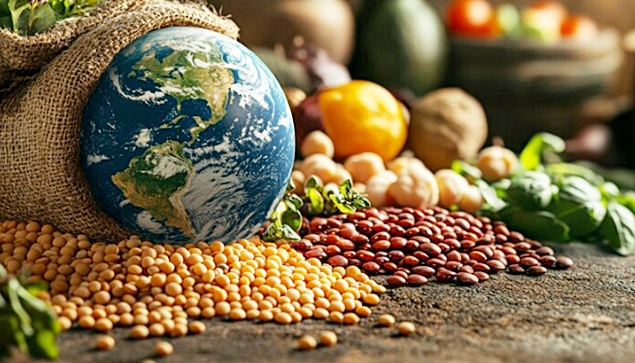916

The “Brussels Effect” Still Shapes Global Agri-Food Trade
Despite growing criticism and international trade tensions, the European Union’s influence in global agri-food trade remains substantial.
The so-called “Brussels Effect”—a term describing the EU’s ability to shape international markets through its regulations—continues to exert a strong presence, particularly in the agricultural and food sectors, as highlighted in a detailed analysis published by Euractiv.
This influence is not rooted in sheer economic power, but in the strength of EU regulations. The Union’s high standards in areas such as food safety, product traceability, animal welfare, and environmental protection are increasingly becoming de facto global norms, even for countries outside the EU.
The reason is simple: those wishing to access the European market—one of the largest and most demanding in the world—must comply with its rules.
Many multinational companies opt to align their production processes with EU requirements not only for export purposes but also across other markets, driven by logistical efficiency and brand reputation. As a result, European standards become global benchmarks, reinforcing Brussels’ role as a regulatory leader—even as the EU’s share of global agricultural production has declined in recent decades.
According to Euractiv, this phenomenon is increasingly evident in developing countries that seek to expand their exports to Europe. Many voluntarily adopt EU standards.
For example, farms across North Africa, Latin America, and Southeast Asia are implementing European regulations on pesticide use or product packaging, even when their national laws are more lenient.
However, the Brussels Effect is not without controversy. Some exporting countries view it as a form of “regulatory imperialism,” where the EU imposes its vision of sustainability and food safety without considering local economic conditions. In response, EU officials argue that these standards are essential to protect consumers and the environment—and that global alignment is a step toward fair and responsible trade.
Moreover, in today’s landscape of multiple crises—from climate change to global food insecurity—Brussels is reaffirming its leadership in promoting sustainable agricultural practices.
Recent trade agreements, such as those with Chile and New Zealand, include binding clauses on environmental protection and labor rights—clear extensions of the EU’s normative influence.
A telling example is the EU’s ban on certain pesticides deemed hazardous. Even though these substances may still be legal elsewhere, producers wishing to export to Europe must stop using them.
In this way, decisions made in Brussels trigger a global domino effect, turning internal rules into international standards.
Nevertheless, Euractiv notes that Brussels’ influence could be undermined by its own inconsistencies. The EU has been accused of applying double standards—demanding compliance from exporters while tolerating infractions within its own borders.
At the same time, internal pressures from European farmers, struggling to compete with cheaper imports, could lead to a loosening of trade policies.
In conclusion, although the European Union faces numerous geopolitical and economic challenges, the Brussels Effect continues to shape the global agri-food landscape.
Influence is no longer measured solely by export volume, but by the ability to set rules and values accepted on a global scale. In a world where sustainability is becoming a central criterion, Europe remains a determined voice—even when contested.





